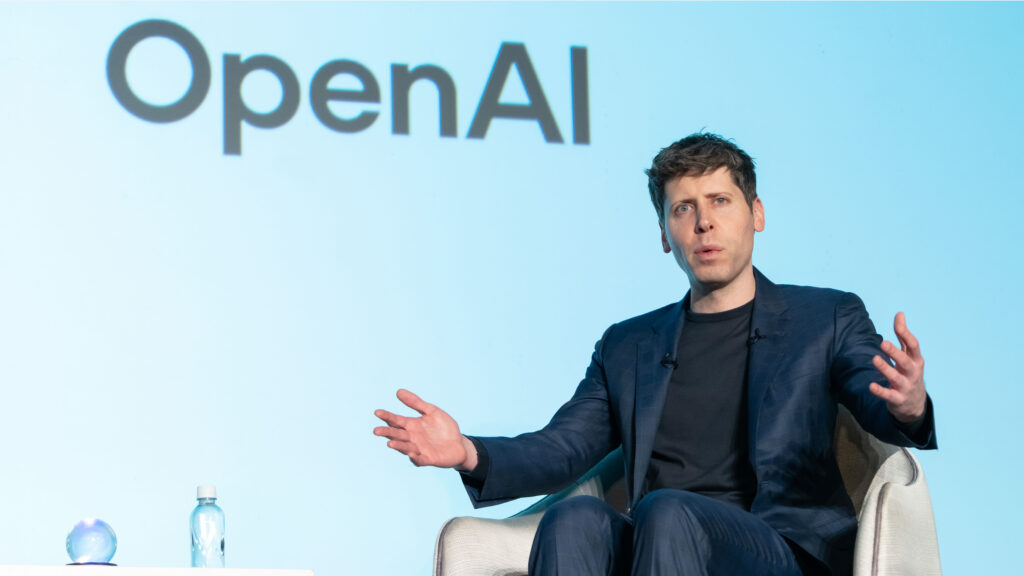1. Introduction
Sam Altman, one of the most recognisable figures in the artificial intelligence (AI) sector, is known globally for his role as the CEO of OpenAI. Despite his position at the helm of one of the most influential AI companies in the world, Altman’s personal wealth is not directly derived from OpenAI. This article examines the origins and growth of his net worth, his ownership status at OpenAI, and the initial sources of funding that enabled his ascent as a prolific venture capitalist.

2. OpenAI and Its Unique Ownership Structure
OpenAI was co-founded in December 2015 by a team of technologists and researchers including Sam Altman, Elon Musk, Greg Brockman, Ilya Sutskever, and others. The organisation operates under a hybrid structure comprising a non-profit entity (OpenAI Inc.) and a for-profit arm (OpenAI Global, LLC) with a capped-profit model (OpenAI, 2023). In this structure, profits from OpenAI Global are capped for investors to ensure alignment with OpenAI’s mission to develop artificial general intelligence (AGI) safely and ethically.
A significant portion—reportedly 49%—of OpenAI Global’s future profits is allocated to Microsoft, which has invested over $10 billion into the organisation. This agreement, however, does not translate directly into ownership equity in the traditional venture capital sense (Bloomberg, 2023).
As of 2025, there is no public evidence to suggest that Sam Altman holds an equity stake in OpenAI. In fact, reports from The Information and Bloomberg indicated that OpenAI’s board considered offering him a 7% equity stake in the for-profit entity in 2023, but this proposal had not been finalised (The Information, 2023; Bloomberg, 2023).
3. Sam Altman’s Net Worth: Estimates and Discrepancies
Altman’s net worth has been estimated to range between $1.2 billion and $2 billion (Forbes, 2025; Finbold, 2025). Notably, his personal income from OpenAI is modest. Public filings suggest that his annual salary as CEO falls in the range of $65,000 to $76,000, in alignment with OpenAI’s commitment to mission-focused governance rather than profit maximisation (The Verge, 2023).
Given the lack of equity ownership and low salary, the question arises: how did Sam Altman become a billionaire?
4. The Sale of Loopt: The Initial Capital Base
The first major turning point in Altman’s financial trajectory was the sale of Loopt, a location-based social networking application he co-founded while at Stanford University. Founded in 2005, Loopt was one of the early players in geolocation technology. In 2012, Loopt was acquired by Green Dot Corporation for approximately $43.4 million (TechCrunch, 2012). Although his individual payout was never publicly disclosed, estimates suggest that Altman earned several million dollars, which provided his initial investment capital.
4.1 Closure of Loopt
Following its acquisition, Loopt was discontinued later in 2012. Green Dot did not continue the app as a consumer-facing product but instead absorbed its technological infrastructure to develop mobile banking solutions and expand its digital platform (Green Dot Corporation, 2012). The decision to shut down Loopt marked the end of the service, but not the end of its legacy, as its technological DNA lived on through other financial products.
5. Angel Investing and Strategic Venture Activity
Following the acquisition of Loopt, Altman began investing in early-stage technology companies. He wrote small cheques—ranging from $25,000 to $100,000—into emerging startups. Some of his earliest and most profitable investments include Airbnb, Stripe, Reddit, Asana, and Pinterest (Fortune, 2020). Many of these companies became “unicorns” with valuations in the billions, exponentially increasing the value of his initial investments.
His access to elite Silicon Valley deal flow allowed him to multiply his capital through strategic diversification and high-return opportunities.
6. Y Combinator and Portfolio Growth
In 2011, Altman joined Y Combinator (YC), the influential startup accelerator, as a part-time partner. By 2014, he had become its President. In this role, Altman was instrumental in expanding YC’s reach and launching the YC Continuity Fund, which made growth-stage investments in the accelerator’s most promising alumni companies.
Through YC, Altman acquired equity stakes in hundreds of startups, either directly or through institutional holdings, dramatically growing his portfolio (Y Combinator, 2018). These stakes, combined with follow-on investments and secondary share sales, contributed substantially to his wealth.
7. Absence of OpenAI Equity: Strategic Philosophy
Despite his significant contributions to OpenAI, Altman’s lack of direct ownership may reflect a deliberate philosophical stance. As CEO of an organisation aiming to benefit humanity broadly rather than generate personal or shareholder wealth, he has often distanced himself from traditional capitalist motivations in the context of AGI development. In public statements, Altman has emphasised the moral responsibility of AI developers over personal gain (Altman, 2023).
8. Summary and Implications
Sam Altman’s financial journey illustrates the trajectory of a tech entrepreneur who leveraged one startup exit (Loopt) into a billion-dollar investment portfolio. His current net worth, while substantial, is largely divorced from his work at OpenAI. Rather, it stems from a mixture of:
- Early successful investments,
- His tenure and equity accumulation at Y Combinator,
- Strategic access to elite startups, and
- Secondary liquidity events.
This underscores a broader principle: influence in the tech industry does not always correlate directly with ownership in one’s most visible organisation. Altman’s case is unique in that he remains at the centre of the AI revolution while deriving his wealth largely from independent, early-stage investment success.
References
- Altman, S. (2023). Public remarks at the World Government Summit. [Transcript].
- Bloomberg. (2023). OpenAI’s Unusual Structure: Microsoft’s 49% Profit Cap.
- Finbold. (2025). Sam Altman Net Worth in 2025: Billionaire Without OpenAI Shares.
- Forbes. (2025). World’s Billionaires List.
- Fortune. (2020). How Sam Altman quietly built a tech investment empire.
- Green Dot Corporation. (2012). Press Release on Loopt Acquisition.
- TechCrunch. (2012). Green Dot Acquires Loopt for $43.4 Million.
- The Information. (2023). Inside the Boardroom Battle at OpenAI.
- The Verge. (2023). Sam Altman Earns Less Than $100k at OpenAI.
- Y Combinator. (2018). A History of Y Combinator and Its Investments.
